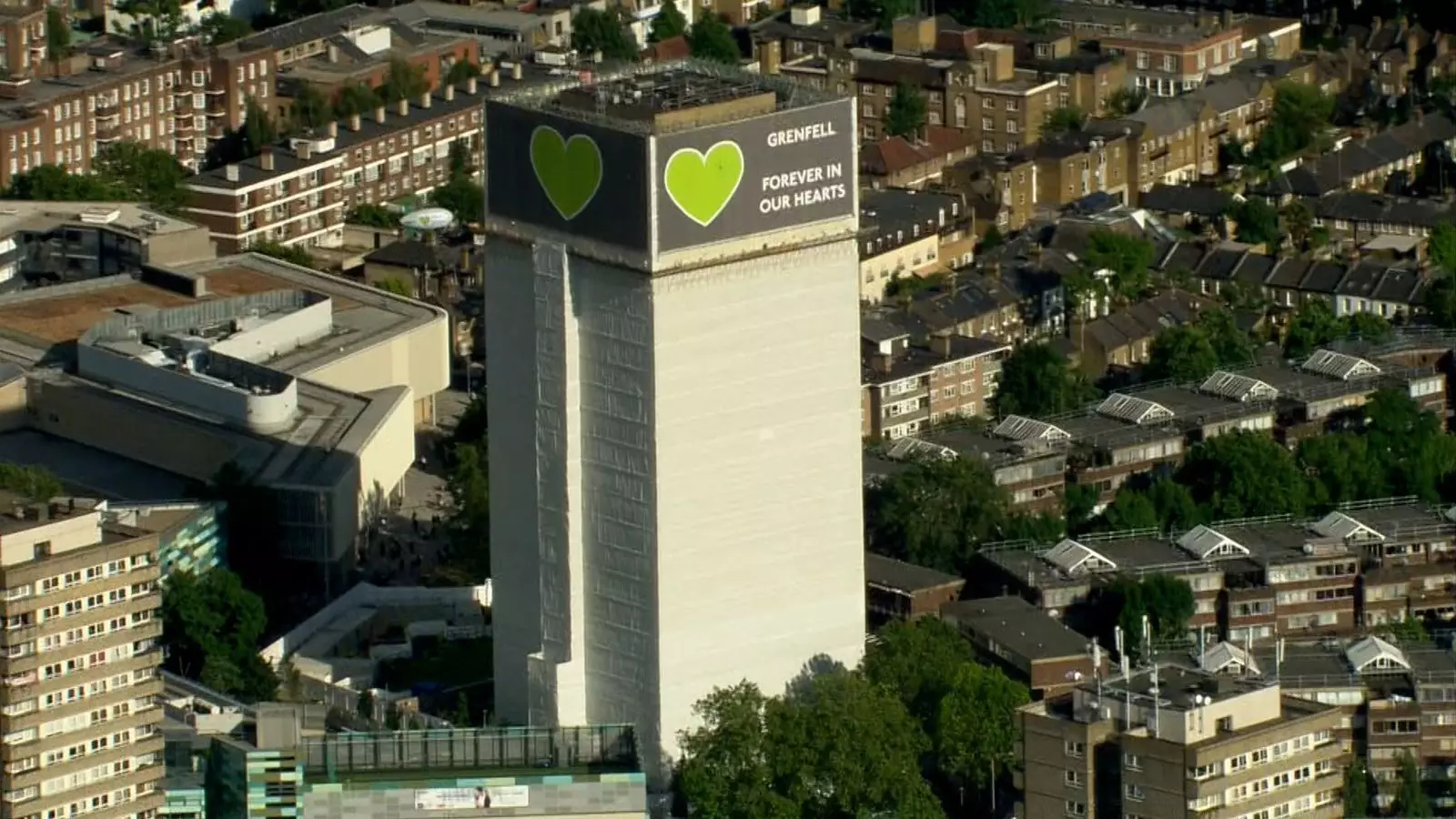The Grenfell Tower disaster remains one of the UK’s deadliest residential fires, claiming the lives of 72 individuals almost eight years ago. This tragedy not only inflicted profound grief on families and communities but also uncovered a myriad of systemic failings among regulatory bodies and emergency services. As discussions continue about how to honor the memory of those who lost their lives, a recent government decision to demolish the remaining structure has reignited a storm of controversy. This decision has drawn sharp criticism from survivors and bereavement advocacy groups who argue that their voices are being systematically ignored.
Grenfell United, a group representing survivors and bereaved families, has publicly condemned the government’s approach, describing it as “disgraceful and unforgivable.” The recent announcement made by Deputy Prime Minister Angela Rayner has only heightened their frustration; not only did she fail to provide satisfactory justification for the demolition but also chose not to disclose how many bereaved individuals had been consulted during the brief four-week engagement period. This lack of transparency has left many feeling marginalized in a decision that holds profound emotional significance as it concerns the resting place of their loved ones. Instead of fostering a sense of community and healing, the government’s actions appear to exacerbate feelings of neglect and grief.
Despite pledging to keep the voices of those affected at the core of her decision-making, Rayner’s actions have drawn skepticism. If the deputy prime minister truly values the input from bereaved families, how is it possible that their overwhelming disapproval was not adequately reflected in her decision to proceed with the demolition? The sentiment expressed by Grenfell United encapsulates the essence of the issue: bereaved families feel their concerns have been overlooked. Commentators question whether the government’s purported commitment to inclusion and transparency is mere rhetoric — a façade that crumbles under scrutiny.
The issues surrounding the Grenfell Tower extend beyond the immediate decision to demolish the building. The ongoing trauma faced by affected families due to repeated discussions about the tragedy highlights the necessity for a thoughtful, compassionate approach to memorialization. The Grenfell Next of Kin group has urged decision-makers to shift the focus from discussions about demolition to envisioning a future that honors the lives lost. They emphasize the need to create a space that memorializes the event rather than serves as a constant reminder of pain and loss. The call for a meaningful memorial points towards a broader need for healing, reconciliation, and community rebuilding.
The intricacies of moving forward after such an immense tragedy are daunting. Calls have emerged for a more constructive dialogue to devise a plan that resonates with the desires and aspirations of those directly affected. Many propose that the discussions should include a diverse range of stakeholders, from bereaved families to local communities, ensuring a genuine representation of voices. The Ministry of Housing, Communities, and Local Government claims that these discussions will be prioritized, yet skepticism lingers.
While experts assure the structural stability of Grenfell Tower, the underlying issue is not merely about the physical state of the building; it’s about the intertwined narratives of loss, survival, and community identity. It is vital that any future plans consider the emotional scars endured by those affected, and this requires careful negotiation that prioritizes empathy over expediency.
As the government navigates the sensitive landscape of decisions surrounding Grenfell Tower, it faces a critical juncture. The demolition of the tower is not just an administrative task; it is deeply intertwined with the emotional tapestry of a community still grappling with loss. To honor their memory and aid in collective healing, authorities must prioritize a dialogue that genuinely listens to bereaved families and survivors. Acknowledging their grief and leveraging their insights may eventually pave the way for a memorial that embodies not just the loss but also resilience, unity, and hope for a better future. As the discussions continue, it is imperative that the voices silenced thus far are not simply heard, but respected and integrated into the vision moving forward.

